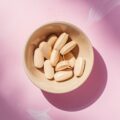Coenzyme Q10, also known as CoQ10, has become an increasingly popular health supplement in recent years. Some people take CoQ10 hoping to boost energy levels, while others use it for specific health concerns like heart health. I spoke with cardiologist Dr. Sarah Smith to understand more about CoQ10 and whether the hype around this antioxidant is justified.
What exactly is CoQ10?
Dr. Smith explains that CoQ10 is a substance produced naturally by the body and present in almost every cell, but especially abundant in heart muscle cells. “It functions as an antioxidant that helps protect cells from damage,” she says. It also plays an important role in energy production within cells.
The body makes CoQ10 on its own, but levels tend to decrease with age. Certain health conditions, as well as the use of statin drugs to lower cholesterol, are linked with lower CoQ10 levels too.
What are the potential benefits of taking CoQ10 supplements?
There are many potential benefits that have been studied, but evidence is strongest around CoQ10 and heart health, says Dr. Smith. “Clinical studies show CoQ10 supplements may help manage certain heart conditions and recover from bypass and heart valve surgeries,” she explains.
Research also indicates that CoQ10 may:
- Provide an extra boost for heart health
- Reduce muscle pain from statin use
- Slow decline in Parkinson’s disease
- Improve symptoms of chronic fatigue syndrome
- Enhance physical performance
More research is still needed to confirm many of CoQ10’s potential benefits. But an initial look is promising, says Dr. Smith. “Generally speaking it is well-tolerated and considered safe,” she says.
How much CoQ10 should people take?
For general health, Dr. Smith recommends sticking close to the standard dose, which is typically 100 milligrams to 200 milligrams per day. “I would not exceed 400 milligrams daily without being monitored by your doctor,” she advises.
Doses between 300 milligrams to 500 milligrams appear most promising for heart health concerns specifically, notes Dr. Smith. But for other uses, evidence is still emerging to indicate ideal amounts.
Are there side effects or downsides I should know about?
CoQ10 supplements are considered quite safe for most people. Side effects might include mild insomnia, nausea, rash, or fatigue. More serious side effects are possible though rare, says Dr. Smith.
It’s also important to keep quality in mind when purchasing supplements. “Seeking out established brands that follow safe manufacturing practices can reduce the risk of contamination,” Dr. Smith suggests.
Also be aware that CoQ10 supplements can interact with blood thinners or chemotherapy drugs. It’s always best to consult your healthcare provider before starting.
The bottom line: Is taking CoQ10 worth it?
“I think CoQ10 is worth considering for high-risk heart patients or for those with heart failure, history of heart attack, or on statins,” concludes Dr. Smith. “Talk to your doctor if you have heart disease and are interested in CoQ10.”
Evidence also looks encouraging for other uses like Parkinson’s disease. And CoQ10 is recognized as being generally safe for healthy individuals too. While not necessarily essential for everyone, CoQ10 just may provide that little extra boost.
Frequently Asked Questions
What foods contain CoQ10?
Some foods that contain CoQ10 include organ meats like liver or heart, certain fish like herring or trout, whole grains, spinach, cauliflower, and legumes like peanuts or soybeans.
Can you get enough CoQ10 from food alone?
It’s difficult to get enough CoQ10 from food alone. Even with a healthy balanced diet containing good sources of CoQ10, your intake is likely 50 milligrams per day at most. Supplements in the 100 to 200 milligrams range can help bridge the gap.
How long does it take for CoQ10 supplements to work?
It may take several weeks to notice any effects from taking CoQ10 supplements. Most clinical studies showing benefits use doses of CoQ10 in the 100 to 300 milligram range, taken for at least a month up to a few years.
Should you take CoQ10 with food?
Yes, it’s best to take CoQ10 supplements with a meal that contains some fat or oil to help absorption. Common dosing instructions suggest taking CoQ10 supplements at breakfast or lunch.
Is CoQ10 safe for long-term use?
Yes, CoQ10 supplements are generally safe for long-term use when taken as recommended. Clinical trials have used doses up to 500 milligrams daily for over a year without major safety issues. As always, consult your doctor before starting any new supplement regimen.









